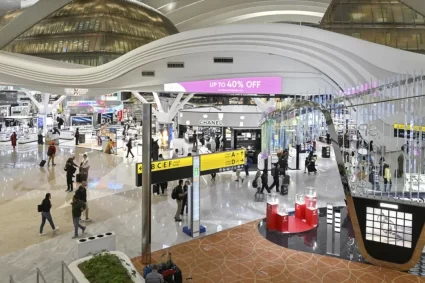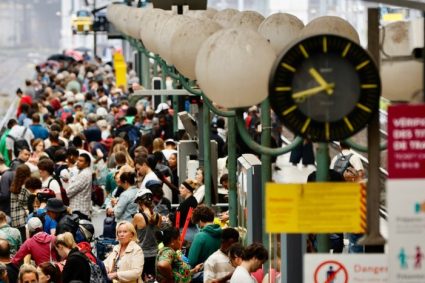
The city of Barcelona is mulling the idea of banning apartment rentals to tourists, a move aimed at easing the housing crisis for local residents, who have been facing housing challenges in recent years. And while the city of Barcelona has undertaken this initiative, Venice defines new rules for visitors, it will fine tourists who stand on bridges or stairs.
In order to cope with the influx of tourists and not to disturb the tranquility of the locals, the two tourist cities, in 2 countries such as Italy and Spain, come with new rules for this summer season for all tourists.
So the City of Barcelona is mulling the idea of stopping renting out apartments to tourists, a move that aims to ease the housing crisis for local residents, who have been facing housing challenges in recent years.
Thus, the authorities aim for the 10,000 apartments in the main tourist point of Spain to be available to local residents who cannot find houses to live in due to high prices.
Barcelona is home to 1.6 million people, but last year, 26 million tourists visited the city, many of whom stayed in rented apartments.
Although tourism accounts for 15% of its economy, residents in Barcelona took to the streets a few days ago to protest against the high number of visitors, even dousing them with water guns.
New rules have been put in place in Venice to manage the flow of visitors. The experiment of the entrance ticket to the city started in April and aims to reorganize tourism in the country, but recently the new rules seek to make life easier for those living in the city.
There are hundreds of foreign tourists, especially Americans, who land early in the morning at Riva degli Schiavoni.
However, from August 1, they will have to wait for specialized guides that provide a maximum limit of twenty-five people per group. The travelers are then divided into small contingents. Among the new rules, prohibition is also foreseen in places such as bridges or stairs, which cause obstacles in the movement of pedestrians.
The early days of this regulation were generally enforced and there were few fines. However, high temperatures have made the situation more difficult for tourists, who have been forced to gather in shady areas, creating a temporary traffic jam.


















